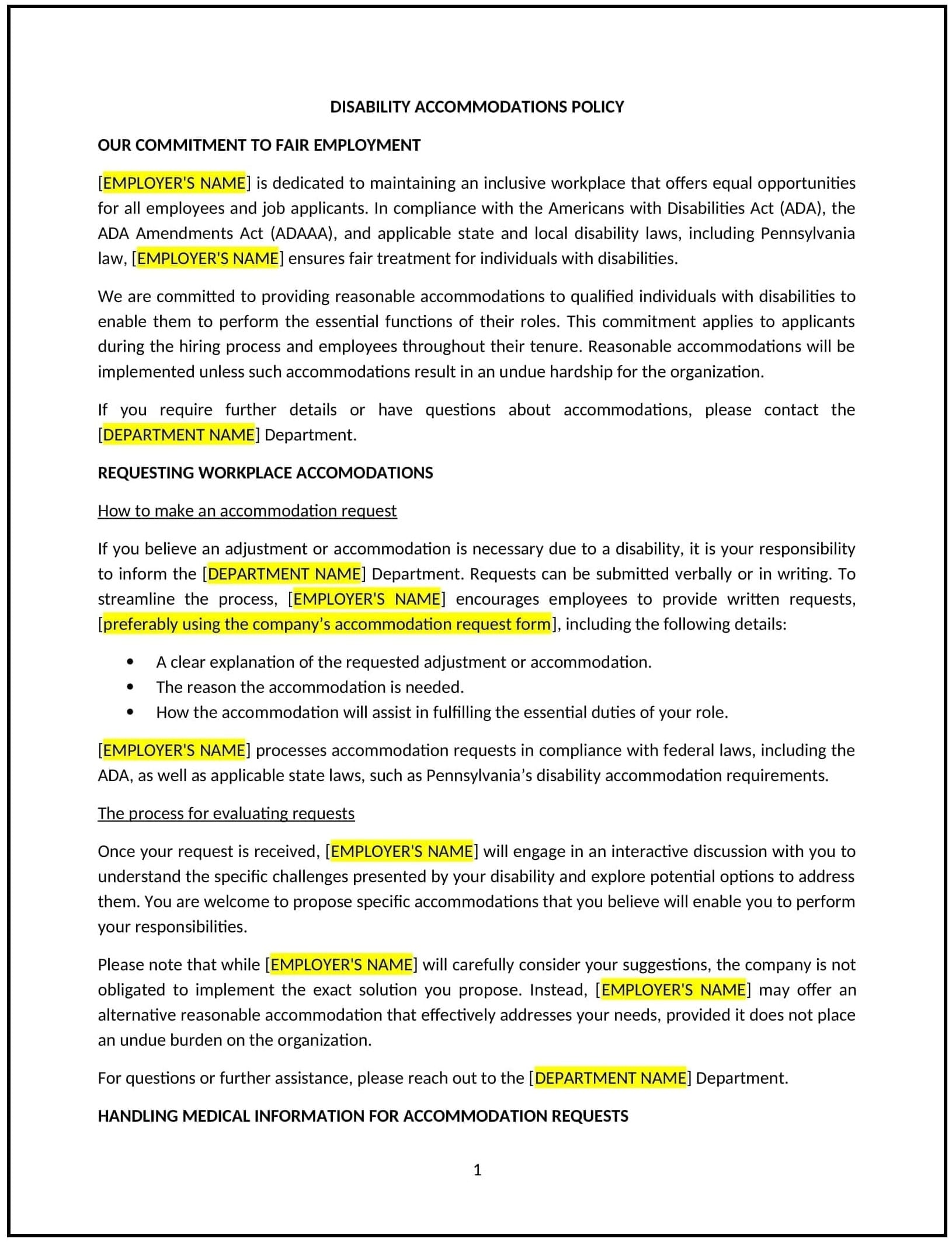Disability accommodations policy (Pennsylvania): Free template
Got contracts to review? While you're here for policies, let Cobrief make contract review effortless—start your free review now.

Customize this template for free
Disability accommodations policy (Pennsylvania)
This disability accommodations policy is designed to help businesses in Pennsylvania provide reasonable accommodations for employees with disabilities, ensuring equal opportunities in the workplace. Whether addressing accessibility, modified work schedules, or assistive technologies, this template provides clear guidance to comply with the Americans with Disabilities Act (ADA) and Pennsylvania-specific disability laws.
By using this template, businesses can foster inclusivity, promote workplace accessibility, and reduce risks associated with non-compliance.
How to use this disability accommodations policy (Pennsylvania)
- Define reasonable accommodations: Clearly outline examples of accommodations, such as assistive technologies, accessible workspaces, modified schedules, or job restructuring.
- Establish request procedures: Provide a step-by-step process for employees to request accommodations, including how to submit documentation and who to contact.
- Include interactive process guidelines: Detail how the employer and employee will collaborate to identify effective accommodations while considering business needs.
- Address confidentiality: Ensure that medical information related to disability accommodations is handled securely and shared only on a need-to-know basis.
- Reflect Pennsylvania-specific considerations: Tailor the policy to address state disability laws, such as additional protections provided under the Pennsylvania Human Relations Act (PHRA).
Benefits of using a disability accommodations policy (Pennsylvania)
A well-structured disability accommodations policy supports inclusivity and compliance. Here's how it helps:
- Promotes workplace accessibility: Ensures employees with disabilities have the tools and resources needed to perform their roles effectively.
- Encourages inclusivity: Demonstrates a commitment to supporting a diverse and inclusive workplace culture.
- Reduces risks: Helps businesses comply with ADA and Pennsylvania disability laws, minimizing legal and reputational risks.
- Supports collaboration: Establishes a clear process for employees and employers to work together on accommodations.
- Reflects local needs: Aligns with Pennsylvania-specific regulations and workplace dynamics to address the needs of employees with disabilities.
Tips for using a disability accommodations policy (Pennsylvania)
- Communicate expectations: Share the policy with employees during onboarding and ensure managers understand their role in supporting accommodations.
- Train supervisors: Equip managers with the skills to handle accommodation requests professionally and in compliance with legal requirements.
- Monitor implementation: Regularly review accommodations to ensure they remain effective and adjust as necessary.
- Provide resources: Offer tools and support, such as accessibility training or connections to disability advocacy organizations in Pennsylvania.
- Review periodically: Update the policy to reflect changes in Pennsylvania laws, federal regulations, or workplace practices.